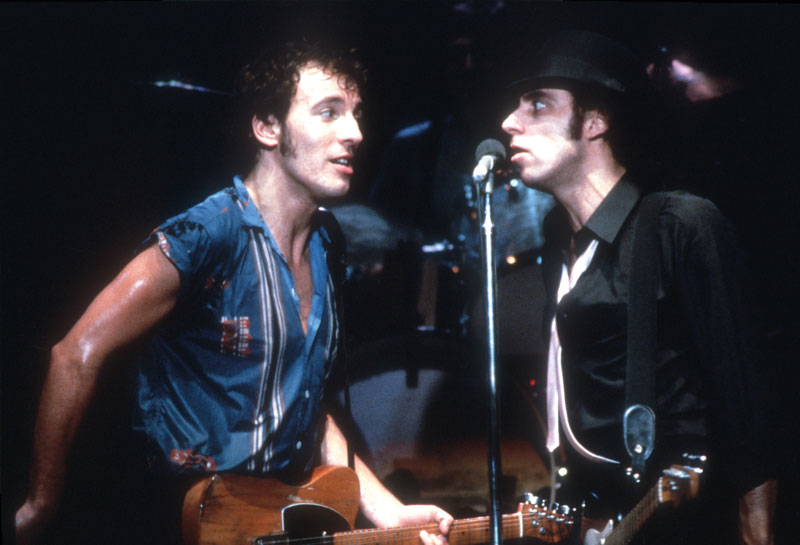When I was16 I already had my first band, The Source. It was a wonderful time to grow up in America. We had a lot to do, a lot of places for the band to play – high schools, Catholic institutions, beach clubs, teenage nightclubs, VFW halls (Veterans of Foreign Wars).We’d only just seen the first real rock‘n’roll band, The Beatles. My parents were concerned about me being in a band but not as much as when I left school and they realised this was what I wanted to do with my life. Any nine-to-five job felt like a prison sentence.
I was quite a religious kid. I was born Catholic but I grew up a Baptist after my mother remarried. I would go to the Easter Sunrise service, which was a real test of your commitment – it was at six in the morning. That religious fervour I felt when I was a kid was transferred completely to rock‘n’roll when I saw The Beatles. I saw The Rolling Stones do Not Fade Away on TV four months later. Unlike The Beatles, they were not polished, with matching hair and perfect harmonies. That was an epiphany for me. Mick Jagger was the first pop star I ever saw who didn’t smile. It sounds a small thing, but it wasn’t to me. Because it said to me this isn’t just showbiz. This is about your life. I saw Jagger and I thought, ‘oh my God, I want some of that’.
My family was extremely close. I grew up in an Italian family but when I was seven my mother remarried – a Dutch guy, who adopted me. He was an ex-marine, Goldwater Republican. So very, very conservative. A wonderful guy really, to marry my mother with a seven-year old-son – that was a big deal in the Fifties. I’m forever grateful to him. But he didn’t like it when I grew my hair long, which was unacceptable then. I got thrown out of school, then I got thrown out of my house. I had a very, very bad relationship with my father. I was a hippie guitar player – for my parents that was one step from being a criminal. In fact, they might have preferred me to be a criminal because that would have been steady work.
I had long hair which was associated with drugs, but I wasn’t doing that. But then a policeman planted marijuana in my cigarettes after he picked me up on the street. So I thought, well, if I’m going to be accused of doing drugs I might as well do them. I did about three LSD trips, all of which were very intense. I did them to try to gain enlightenment while I was also absorbing eastern philosophy, which George Harrison had brought into our lives. That was very appealing to me. But experimentation with hallucinogenic drugs was brief. I gained a lot of wisdom – you can get enlightened pretty quickly on one pill. Then after six months I stopped taking drugs and I never took them again.
I had my band, The Source. And Bruce (Springsteen) had his band, The Castiles. So we became friends. I saw in Bruce a similar sort of character to me, in that he was dedicated to rock‘n’roll. It was forever with him, as it was with me. So we got very close, and remain so to this day. He had a sort of folk part to his character as well as rock ‘n’ roll. He was attracted to singer songwriters like Dylan and Tim Buckley, Van Morrison’s Astral Weeks. I preferred the rock and pop world to the folk world.
I think the younger me would be shocked and perhaps depressed that I left the E Street Band the moment we succeeded. It was a crazy thing to do, looking back on it now. On one hand I deeply regret leaving (Springsteen’s band which van Zandt officially joined in 1975). On the other hand, everything I’ve accomplished I accomplished after I left.










